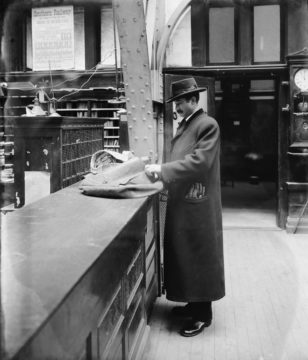From Lapham’s Quarterly:
 When the London newspaper the Athenian Mercury, edited and published by the author and bookseller John Dunton, first answered questions about romance, bodily functions, and the mysteries of the universe in 1691, it may have created the template for the advice column. But the history of advice stretches back even further into the past. Advice—whether unsolicited, unwarranted, or desperately sought—appears in ancient philosophical treatises, medieval medical manuals, and countless books. Lapham’s Quarterly is exploring advice through the ages and into modern times in a series of readings and essays.
When the London newspaper the Athenian Mercury, edited and published by the author and bookseller John Dunton, first answered questions about romance, bodily functions, and the mysteries of the universe in 1691, it may have created the template for the advice column. But the history of advice stretches back even further into the past. Advice—whether unsolicited, unwarranted, or desperately sought—appears in ancient philosophical treatises, medieval medical manuals, and countless books. Lapham’s Quarterly is exploring advice through the ages and into modern times in a series of readings and essays.
Charles Lutwidge Dodgson wrote many letters, and he sometimes offered a bit of advice in them. To a friend feeling lonesome and irritated after a move in 1885, he wrote that “every new form of life we try is, just at first, irksome rather than pleasant.”
Suppose you hurt your arm, and had to wear it in a sling for a month. For the first two or three days the discomfort of the bandage, the pressure of the sling on the neck and shoulder, the being unable to use the arm, would be a constant worry. You would feel as if all comfort in life were gone; after a couple of days you would be used to the new sensations; after a week you perhaps wouldn’t notice them at all, and life would seem just as comfortable as ever.
So my advice is, don’t think about loneliness, or happiness, or unhappiness, for a week or two. Then “take stock” again, and compare your feelings with what they were two weeks previously. If they have changed, even a little, for the better you are on the right track; if not, we may begin to suspect the life does not suit you. But what I want specially to urge is that there’s no use in comparing one’s feelings between one day and the next; you must allow a reasonable interval for the direction of change to show itself.
More here.
